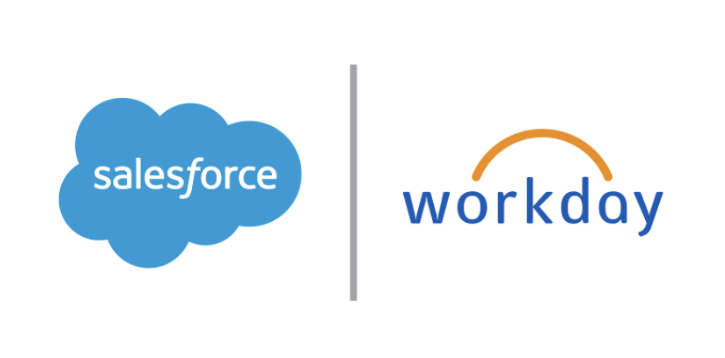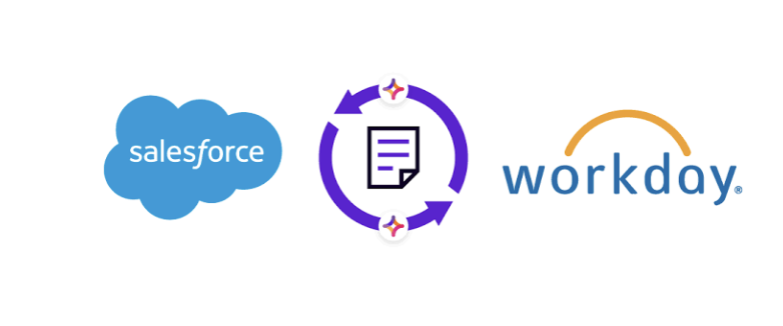
A growing number of businesses are moving their operations online, and with that comes a meteoric growth in the popularity of cloud-based services as well as platforms. When it comes to keeping up with the latest industry trends or technology, legacy data and systems are completely irrelevant. Prominent frameworks for beginners in enterprise software include Workday and Salesforce, each offering unique advantages for different business needs. Both Salesforce and Workday are prominent cloud-based service providers which have assisted businesses of varying sizes in optimizing their operations. With Workday Training in Hyderabad, you can learn how researching Workday vs Salesforce is crucial for making the correct decision.
Salesforce and Workday are similar in that they both cater to the unique requirements of businesses by offering scalable, customizable, and adaptable services to their customers. While both Workday and Salesforce are powerful platforms, the choice between them might depend on the specific needs of an organization, including the required level of physics skills for customization and integration. To assist users in optimizing their company records as well as achieving their goals, they employ process automation as well as seamless data management.
In order to gain a better grasp of Workday vs. Salesforce, it’s crucial to grasp the core concepts and user-facing functionality for both platforms.
Table of Contents
- How Does Salesforce Work?
- How Does Workday Work?
- Essential Functions of Salesforce
- Essential Functions of Workday
- Conclusion

How Does Salesforce Work?
For almost twenty years, Salesforce has been providing its services to customers, making it an industry leader in customer relationship management. In order to give their customers more tailored service, businesses can now record, save, evaluate, track, as well as share their business data.
With versions starting at $25/user/month, Salesforce is affordable enough to meet the demands of organizations of all sizes. Salesforce Clouds are the divisions into which the CRM giant has split its solutions. Each cloud service caters to a certain sector or department by providing its customers with specialized tools and capabilities. The educational landscape of bartending is evolving, with institutions leveraging platforms like Workday or Salesforce to manage student data, track certifications, and streamline administrative processes. Clouds for sales, service, marketing, commerce, as well as community, are among Salesforce’s finest solutions.
The mission of Salesforce Training is to empower organizations to connect with their customers in the most effective way and to provide their staff with robust tools to optimize company operations. There are a lot of features, instruments, add-ons, as well as integrations available on this rather large CRM platform.
With a foundational knowledge of Salesforce and Workday under our belts, it’s time to compare and contrast the cloud-based platforms’ functionalities.
How Does Workday Work?
Renowned for its expertise in corporate resource planning, human resources management, as well as managing finances, Workday is a cloud-based platform. While Workday is most recognized for its human capital management (HCM) capabilities, it offers a centralized platform with many other functions all rolled into one. Medium and big businesses, particularly those with several locations, will find Workday to be an ideal solution.
The most valuable resource every company has is its people, as well as Workday, helps businesses manage, recruit, grow, and then optimize their human resources. By facilitating the easy management of personnel records, the cloud-based platform aims to meet the unique requirements of each business’s workforce. With Workday, businesses can put their people first in every step of the entire procedure. The driving force behind it is the desire to assist management in better managing their staff, which in turn increases participation and efficiency inside the organization.
Essential Functions of Salesforce
- Managerial Headship
A highly sought-after attribute of Salesforce is lead management. From lead acquisition all the way through to the consumer conversion, your sales professionals can handle their leads on the CRM platform. In this automatic sales pipeline, customers can enter their sales prospects and monitor their progress through various phases. Salespeople can also use Salesforce to assign leads a score depending on how they’ve behaved. They can then prioritize and tend to them according to the response they’re most likely to receive.
- Managing a Campaign
With Salesforce CRM, users can build and oversee sales and marketing efforts from one convenient location. It equips your staff with tools and functions that automate consumer outreach across several channels, including mobile, online, email, as well as social media. With streamlined campaign management, your team of marketers and salespeople can craft an effective plan to contact the correct people at the appropriate time.
- Application Development for Salesforce
Businesses may build focused and powerful applications to simplify their business operations with Salesforce, which also helps users maintain their customer database. You may build business-specific platforms that leverage your Salesforce data to offer clients personalized services by construction uses in the Salesforce environment.
- Integrating Salesforce
Salesforce allows users a great deal of personalization. You can customize its features to fit your needs in terms of the processes you wish to automate, the consumers you wish to reach, the CRM users you wish to engage, and the resources you wish to employ. Users are able to connect Salesforce with appropriate third-party apps and services thanks to its configurable nature.
By integrating with Salesforce, users are able to take advantage of the best features of both platforms through a unified interface. That way, nobody on your team will have to manually sync data when they move between platforms.
- Community for Salesforce Users
Companies may use Salesforce to create customized communities with their clients, workers, and partners. This creates a neutral space where all users of Salesforce may gather to have meaningful conversations. Companies can connect with their customers and suppliers in Salesforce Partner Communities to work together towards shared goals. Conversely, Salesforce user groups facilitate the exchange of useful ideas and answers to shared issues across Salesforce users.
- Mobile Personalization
By allowing for easy mobile modification, Salesforce gives users more flexibility. With Salesforce’s smartphone application, users can do it all—access records, create changes, view reports, create accounts, and more—from anywhere. Customizations like these assist organizations stay aligned in this digital age, where remote employment and hybrid workspaces are becoming increasingly common.
Read: E-Learning: Revolutionizing Education with Educational Robots
Essential Functions of Workday
- Management of Human Resources
The most prominent aspect of Workday is its HRM capabilities. Businesses can streamline and improve their personnel operations with the help of this cloud-based technology. In addition to giving workers more autonomy through self-service features, Workday facilitates streamlined salary administration, absence management, as well as other management-related processes for managers.
- Efficient Hiring Process
To help businesses find and hire the best candidates, Workday offers centralized and automated recruiting solutions. Users can search for, interact with, share, and ultimately choose the best both internal and external applicants for their firm on the site.
The management team is able to monitor each applicant from the moment they apply all the way through their official hiring process. Additionally, with Workday Training in Hyderabad, learn how consumers are able to examine the open jobs as well as the kind of people sought by the organization at any given moment through the recruitment solution.
- Personnel Administration
Managing, recognizing, and recognizing staff members is the focus of this Workday function. One central platform may house and handle all of an organization’s personnel data, including that which pertains to career counseling, succession planning, as well as personalized performance monitoring.
- Payroll Administration
Workday simplifies payroll management, enabling organizations to run checks automatically, evaluate flexibilities and deductions, execute batch calculations, as well as carry out numerous payroll computations. With Workday Training in Hyderabad, learn how Workday’s Cloud Connection for Third-party Payrolls, businesses with a global workforce can easily integrate with third-party payroll providers.
- Time Monitoring
Every day, workers in an organization can use this basic but crucial Workday tool to monitor how much time they spend on various initiatives. Workday is a cloud-based platform that offers users customizable options, including the ability to track time on desktops as well as handheld devices.
- Analysing Big Data
Users are able to get a more complete view of their company by integrating Workday data with appropriate non-Workday data sources through the Big Data Analytics function of Workday. Multiple divisions within an organization can take advantage of the platform’s built-in analytics template to tackle critical business concerns.
Conclusion
It would be unfair to claim that Workday is better than Salesforce after comparing the two platforms’ features. With either platform, companies may optimize their company information as well as use it to streamline their procedures.
Salesforce is a great tool to use if you want to improve workforce management and boost engagement among workers. Conversely, you should move forward with Salesforce deployment if your priority is to communicate with your intended audience across several channels as well as offer customized services to your clients.
With Workday Training in Hyderabad, learn how you should definitely make the necessary transition to the Internet of Things, regardless of the cloud-based solution you decide to use. Jump on the digital bandwagon if you want to carve out a special place for yourself in your industry and take the company to the next level.
